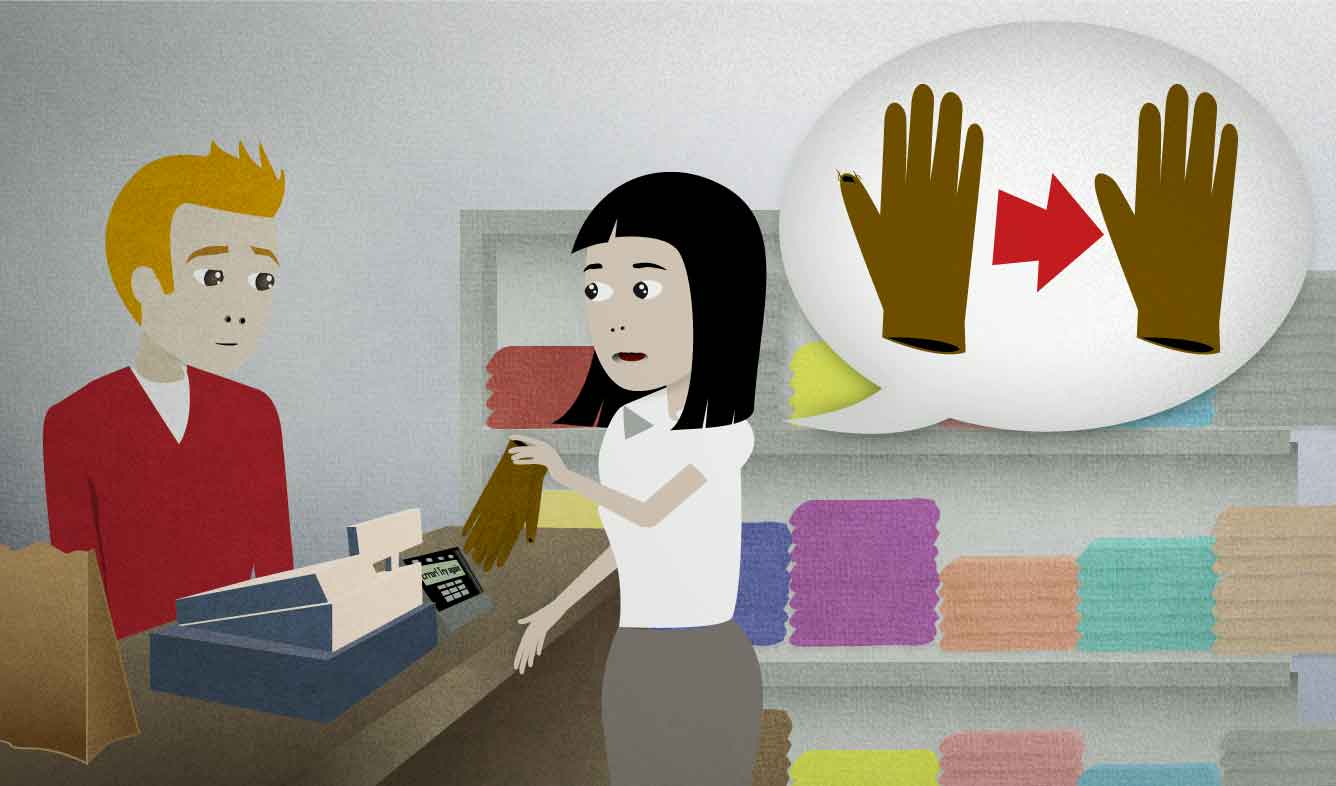“I was wondering if I could exchange them for another pair.”
Earlier today, you bought a pair of gloves. But you discovered that there was a hole in one of them. You went back to the store, and now you're asking the cashier if you can get a replacement for the gloves you bought. You say this to the cashier.
I was wondering if I could exchange them for another pair.
Want Video and Sound? Follow us on YouTube

exchange (an item from a store) for (another item)
To "exchange" two things means to switch them:
We exchanged business cards, but that was the last I ever heard from her.
At a store, "exchanging" an item means returning it to the store, and getting something else from them instead.
If it doesn't fit you, let me know and I'll give you the receipt to exchange it.
This is different from "returning" an item, which is when you give the item back to the store and they give you back your money.
In the U.S., most clothing stores will allow you to exchange clothes that you buy for something else. Other stores like electronics stores will also let you exchange something if it's broken. A lot of stores will also allow you to return items, though some places only let customers exchange their items for store credit. This is money that can only be used in that store.
a pair of gloves
Two matching gloves are called "a pair". When you're talking about both gloves together, call them "a pair of gloves" or "a pair".
You also call these clothing items "a pair":
a pair of glasses
a pair of shorts
a pair of socks
I was wondering if...
This is a way to introduce a request. It makes the question sound really polite:
Hey Jen, I was wondering if I could borrow your textbook over the weekend.
I was wondering if you'd like to go out for coffee some time.
You say "I was wondering if..." even if you're still thinking about this question now. There's no grammatical reason for using the past tense ("was wondering"). That's just how the expression is said.
